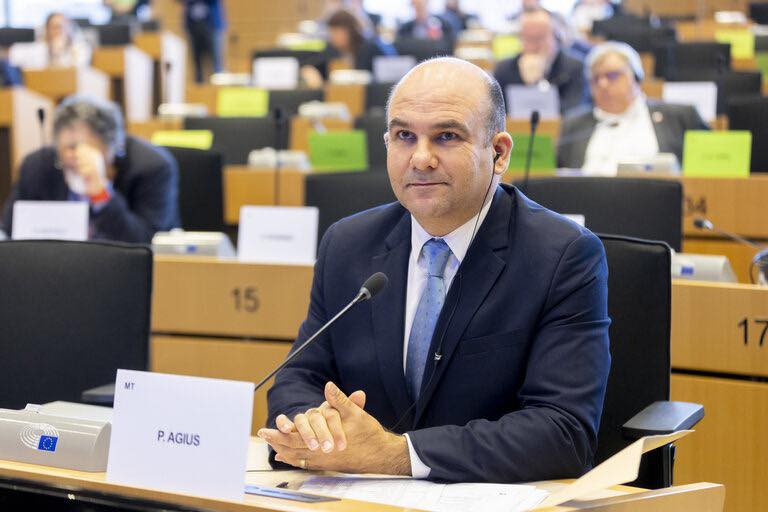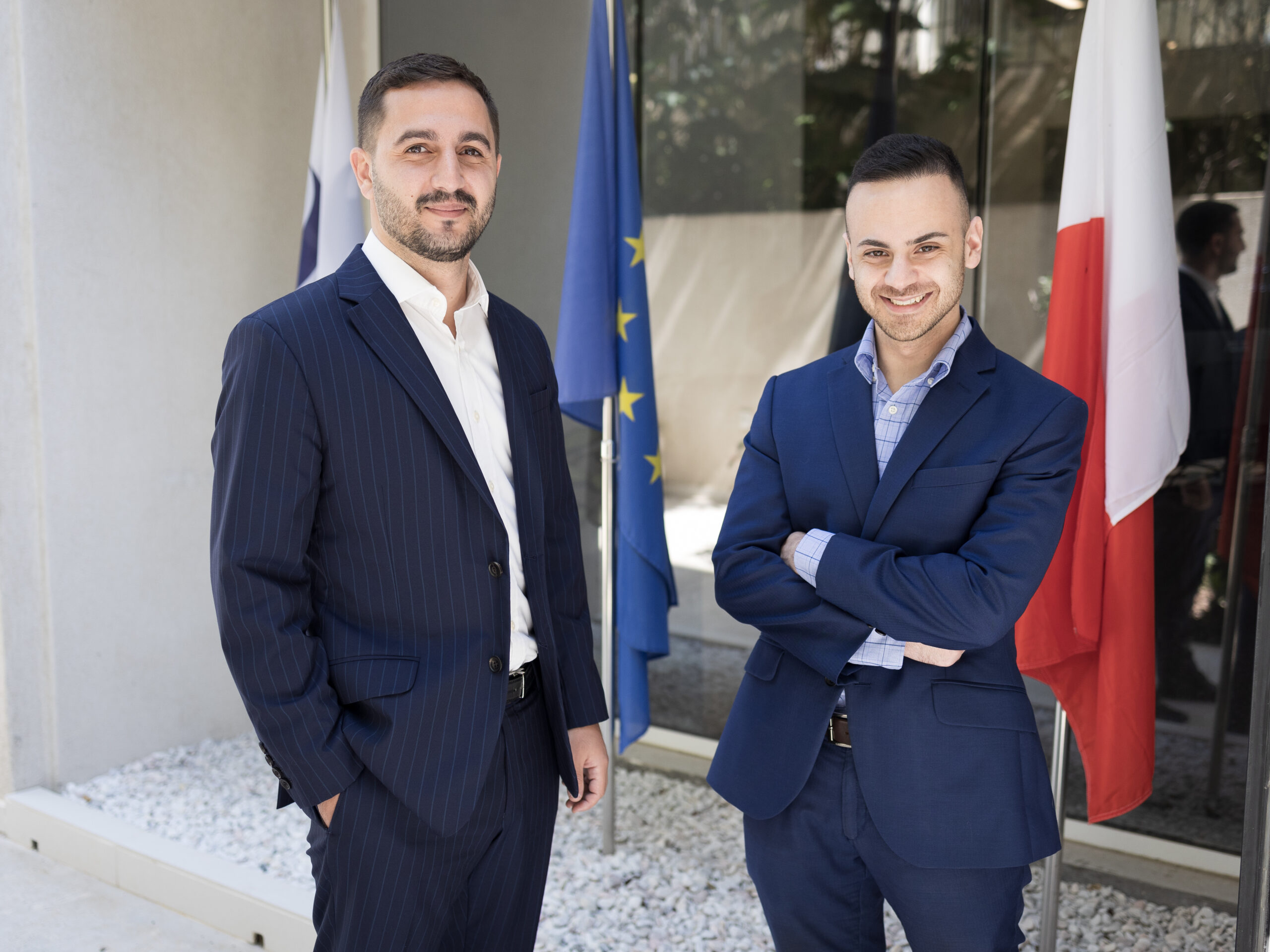Maltese MEP Peter Agius has called on the European Commission to take urgent steps to address growing legal inconsistencies and regulatory fragmentation within the EU’s online gaming sector.
Warning that the Commission’s inaction is undermining core European freedoms, Dr Agius argues that failure to intervene risks harming jobs, enabling monopolistic practices, and eroding consumer protections.
“European freedom of movement in online gaming services is being lost in legal battles and conflicting court jurisdictions,” Dr Agius stated. “Up till a few years ago, the European Commission imposed a measure of proportionality and non discrimination on member states. This stopped in 2017 when the Commission took a step back and dropped all pending cases of infringement”.
Dr Agius is not alone in making such appeals. Prime Minister Robert Abela has similarly raised concerns about national measures that undermine the spirit of the Single Market, citing the iGaming sector as a key example. In a meeting with former Italian Prime Minister Enrico Letta in 2024, he emphasised the need for EU legislation that accounts for the realities of peripheral countries like Malta and ensures fair access to services, medicines, and opportunities across all member states.
The MEP’s comments come as Malta’s gaming sector – a pillar of the national economy contributing around 12 per cent to GDP – faces mounting legal challenges in other EU jurisdictions, particularly Austria and Germany. Courts in these countries have ruled that Malta-based operators were offering services illegally within their territories, prompting lawsuits demanding refunds for player losses.
“The recent legal wranglings and conflict of jurisdiction on court cases by losing bidders in Austria and Germany against operators in Malta show it is now time for the Commission to urgently act again to safeguard EU freedoms,” he said.
The MEP’s appeal centres on the principle of free movement of services, one of the EU’s fundamental freedoms under Article 56 of the Treaty on the Functioning of the European Union (TFEU). This principle allows companies licensed in one member state to offer services across the EU. In practice, however, national laws in some member states require operators to hold a domestic licence, raising questions of proportionality and legal conflict.
Bill 55: Malta’s controversial line of defence
In response to the escalating legal uncertainty, Malta passed Bill 55 in 2023. The law allows local courts to reject the recognition and enforcement of foreign judgments against Malta-based gaming companies, provided they comply with Maltese law. It was passed with bipartisan support in Parliament and described as a necessary measure to protect a key economic sector from foreign litigation.
Critics, however, argue that Bill 55 contravenes EU law and obstructs legitimate compensation claims from consumers in other member states. Courts in Austria, Germany, Sweden, and the Netherlands have ruled against Malta-licensed firms, insisting their services are illegal unless locally licensed. In contrast, Maltese courts have upheld Bill 55 by citing the EU’s own commitment to the free movement of services.
Two recent landmark rulings from Maltese courts rejected claims brought by Austrian players, asserting that foreign courts cannot compel Maltese operators to reimburse losses. The rulings emphasised that Austria’s strict prohibitions on foreign gaming services are disproportionate and not aligned with earlier European Court of Justice (ECJ) interpretations.
“I am acting upon the calls of several operators and their representatives in Malta and in Europe by calling on Vice-President Sejourne for Commission action to restore internal market freedoms in online gaming. The industry provides thousands of quality jobs in Malta while offering a highly regulated gaming option with high player protection standards. The European consumer stands to gain from a regulated gaming market with high player protection rules, fending off the high risks of an illegal gaming offer.”
A fragmented landscape and calls for harmonisation
The legal uncertainty facing Malta-based gaming firms is symptomatic of a broader issue: The lack of a harmonised EU-wide framework on online gambling. In 2017, the European Commission disbanded its dedicated Gambling Unit and abandoned ongoing infringement proceedings, leaving regulation to individual member states. A 2021 letter signed by 13 European regulators calling for more coordination went unanswered.
Meanwhile, legal actions against Malta-licensed operators continue to grow. A report by Investigate Europe found that more than 50,000 claims are currently pending in Germany and Austria, totalling an estimated €1 billion in potential losses. Lawyers representing affected players argue that Malta’s Bill 55 violates EU law and obstructs rightful compensation, calling on the European Commission to initiate infringement proceedings against Malta. However, while the Commission has stated it is “assessing” the legal situation, it has so far stopped short of taking formal steps against any party.
In contrast, Dr Agius is urging the Commission to act not against Malta, but to restore the internal market’s integrity by addressing the regulatory fragmentation and protectionist measures in countries like Austria and Germany. He believes the Commission’s continued inaction in the face of these growing legal conflicts is no longer acceptable and risks undermining the principle of free movement within the EU.
Regulating litigation funding
In his letter to the Commission, Dr Agius also highlighted the emerging role of Third Party Litigation Funding, whereby external firms finance legal actions against Malta-based operators.
“The practice needs to be regulated to prevent further abuse of legal loopholes at the expense of consumers and businesses,” he noted.
This model has enabled groups of unsuccessful gaming bidders to coordinate legal challenges across multiple jurisdictions, creating added legal pressure on Maltese firms.
Safeguarding value-added industries
As a final point, the MEP emphasised the need to defend high-value sectors in Malta, such as online gaming, which help move the economy away from low-productivity, unsustainable growth models.
“Malta must protect and nurture its gaming industry to ensure long-term economic sustainability and competitiveness. The European Commission must step up and take decisive action before it’s too late,” Agius concluded.
Whether the Commission will act on Dr Agius’ appeal remains to be seen. But for Malta’s gaming industry – and the thousands it employs – the stakes could not be higher.
Featured Image:
Peter Agius / Facebook
Continue Reading
Together Gaming Solutions plc announces early redemption of its 5.9% unsecure callable bond
These bonds were originally issued in 2019 and scheduled to mature between 2024 and 2026
CasinoBonusesFinder: A fresh look at bonus finding in 2025
Since 2010, online platform CasinoBonusesFinder has helped players answer one essential question: Which casino bonus is truly worth my time?
Maintaining Malta’s edge in iGaming – CLA Malta weighs in
As emerging jurisdictions challenge Malta's iGaming dominance, CLA Malta’s experts outline the critical success factors
Gambling and financial regulators team up for closer cooperation
The MGA and MFSA have signed an MoU, designed to deepen their longstanding collaboration









